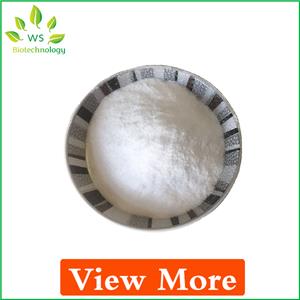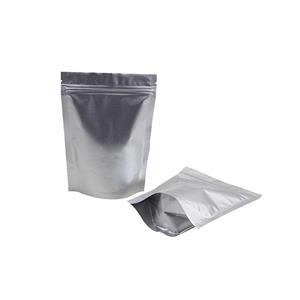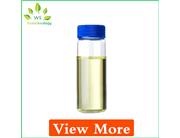Sodium taurocholate is a bile salt derived from the conjugation of taurocholic acid with sodium. It plays a critical role in the digestion and absorption of fats and fat-soluble vitamins in the small intestine. Beyond its physiological functions, sodium taurocholate has a wide range of applications across various industries, including pharmaceuticals, biotechnology, research, and more. Below is a comprehensive overview of the applications of sodium taurocholate:
## 1. **Physiological and Biological Roles**
### **Fat Digestion and Absorption**
- **Emulsification of Fats:** Sodium taurocholate acts as a natural emulsifier, breaking down large fat globules into smaller micelles, thereby increasing the surface area for digestive enzymes like lipases to act upon.
- **Transport of Fat-Soluble Vitamins:** It facilitates the absorption of vitamins A, D, E, and K by forming micelles that transport these vitamins through the aqueous environment of the intestine to the intestinal mucosa.
### **Liver Function and Bile Formation**
- **Bile Composition:** Sodium taurocholate is a major component of bile, synthesized in the liver and stored in the gallbladder. It aids in the regulation of cholesterol levels by solubilizing cholesterol in bile, preventing gallstone formation.
## 2. **Pharmaceutical Applications**
### **Drug Formulation and Delivery**
- **Solubilizing Agent:** Sodium taurocholate is used to enhance the solubility of poorly water-soluble drugs, improving their bioavailability.
- **Micelle Formation:** It assists in the formation of micellar structures that can encapsulate hydrophobic drugs, facilitating their transport across biological membranes.
### **Oral Rehydration Solutions**
- **Electrolyte Balance:** In some formulations, sodium taurocholate is included to aid in the absorption of electrolytes and water, especially in cases of dehydration caused by diarrhea.
### **Antimicrobial and Antiviral Agents**
- **Cholesterol-Dependent Pathogens:** Sodium taurocholate can disrupt the lipid membranes of certain bacteria and viruses, enhancing the efficacy of antimicrobial and antiviral agents.
## 3. **Biotechnology and Research**
### **Cell Culture and Cryopreservation**
- **Cell Membrane Stabilization:** Sodium taurocholate is used in cell culture media to stabilize cell membranes, promoting cell viability during in vitro experiments.
- **Cryoprotectant Agent:** It aids in the protection of cells and tissues during the freezing and thawing processes, reducing ice crystal formation and cellular damage.
### **Protein and Enzyme Studies**
- **Denaturation and Refolding:** In biochemical research, sodium taurocholate is employed to denature proteins, facilitating the study of protein folding and structure.
- **Enzyme Activation:** It can act as a co-factor or activator for certain enzymes, aiding in enzymatic assays and kinetic studies.
### **Membrane Protein Extraction**
- **Solubilization of Membranes:** Sodium taurocholate is effective in solubilizing membrane proteins, making them accessible for purification and structural analysis.
## 4. **Medical Diagnostics**
### **Gallbladder Function Tests**
- **Cholecystokinin Stimulation:** Sodium taurocholate is used in diagnostic tests to stimulate the gallbladder, assessing its function and the presence of gallstones or other biliary disorders.
### **Liver Function Tests**
- **Bile Acid Measurement:** Elevated levels of sodium taurocholate in blood tests can indicate liver dysfunction, bile duct obstruction, or other hepatobiliary diseases.
## 5. **Agricultural Applications**
### **Livestock Nutrition**
- **Digestive Health:** Sodium taurocholate supplements are sometimes added to animal feed to enhance fat digestion and nutrient absorption in livestock, promoting better growth and health.
## 6. **Cosmetic Industry**
### **Emulsifying Agent**
- **Skincare Products:** Due to its emulsifying properties, sodium taurocholate is utilized in creams and lotions to ensure uniform distribution of oils and water-based ingredients.
- **Hair Care Products:** It helps in the formulation of shampoos and conditioners by stabilizing emulsions and improving product texture.
## 7. **Environmental and Industrial Applications**
### **Biodegradable Detergents**
- **Eco-friendly Cleaning Agents:** Sodium taurocholate is explored as a component in biodegradable detergents, offering effective cleaning while minimizing environmental impact.
### **Wastewater Treatment**
- **Emulsification of Pollutants:** It aids in breaking down oil and fat-based pollutants in wastewater, facilitating their removal through biological degradation processes.
## 8. **Food Industry**
### **Emulsifier in Food Products**
- **Dairy and Processed Foods:** Sodium taurocholate can be used to stabilize emulsions in products like ice cream, margarine, and salad dressings, ensuring consistent texture and quality.
## **Safety and Handling**
While sodium taurocholate is generally considered safe for its intended applications, proper handling and safety measures are essential:
- **Protective Equipment:** Use gloves, goggles, and protective clothing to prevent skin and eye contact.
- **Ventilation:** Ensure adequate ventilation when handling in powdered form to avoid inhalation.
- **Storage:** Store in a cool, dry place away from incompatible substances like strong acids or oxidizing agents.
- **Disposal:** Follow local regulations for disposal to minimize environmental impact.
## **Conclusion**
Sodium taurocholate is a versatile compound with essential roles in physiological processes and a broad spectrum of applications across various industries. Its ability to emulsify fats, enhance drug solubility, stabilize cell membranes, and act as an emulsifying agent in cosmetics and food products underscores its significance. Whether in medical diagnostics, biotechnology research, or everyday consumer products, sodium taurocholate continues to be a valuable component driving advancements and improvements.
If you are considering using sodium taurocholate for a specific application, it is advisable to consult relevant scientific literature, industry guidelines, or seek expert advice to ensure optimal results and adherence to safety protocols.



 China
China

